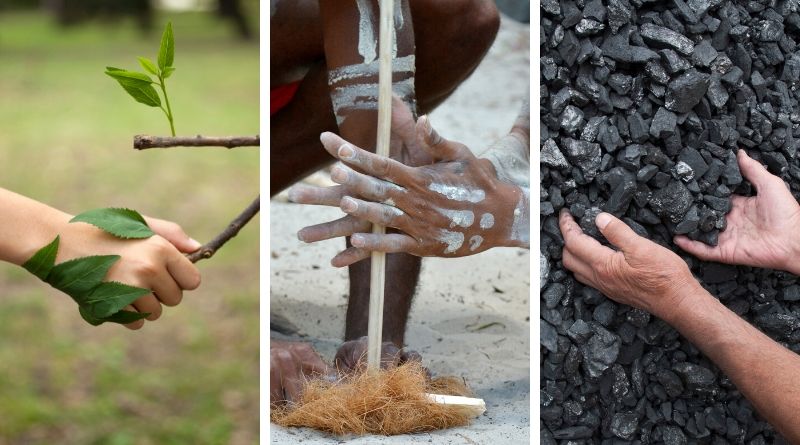World Environment Day, Black Lives Matter, And Confronting Extractivism

Today is World Environment Day. How does one mark World Environment Day in the world we’re living in right now? In a world where centuries of colonialism and racist oppression are spilling into open insurrection again, while we’re still in the midst of a global pandemic, what should we say about World Environment Day?
While pondering this, I was deeply troubled (if sadly not terribly surprised) to come across online comments from people attacking environmentalists and environmental organisations who had been making important public statements of solidarity with the Black Lives Matter movement. Even now, people are telling environmentalists to stick to tree hugging, asking what protecting nature has to do with racial justice.
The simplistic answer is – decent people care. Decent people who care about protecting the natural world also care about oppressed people.
This isn’t, however, a very useful explanation. It doesn’t tell us why people do, or should, care. And, worse – far worse – it isn’t even always true. Early conservationism in the United States had a nasty white supremacist flavour, as this challenging article in the New Yorker by Jedediah Britton-Purdy discusses. The whiteness of the contemporary environment movement has only recently begun to be challenged. Even today, parts of the climate movement can be heard displaying their privilege by saying we can jettison democratic norms for a while in order to tackle climate change quickly, and we know full well who will bear the brunt if we do that. And we should not shy away from confronting the very uncomfortable reality of eco-fascism, as covered particularly well in this excellent podcast by the Post Carbon Institute.
A better explanation is needed, an explanation that draws out the links between environmentalism and racial justice, and that helps us move from conservationism, which can be a conservative or even reactionary mode of thinking, towards ecological thinking, which seeks to actively cultivate a better world.
One prism to view this through is justice. As the wonderful Senator Mehreen Faruqi says:
This isn’t just a good slogan. It explicitly brings social, environmental and racial issues together as interlinked questions of justice. It highlights that the only path to a better, more just world, lies through tackling all three at the same time. This is a practical point, in that aligning causes is the only way to bring enough people together to effectively challenge the powers that push us all down. But it is also a philosophical one.
Mehreen’s tweet reveals that environmental justice, social justice and racial justice are interlinked not just for practical reasons, and not just because decent people should care about all three, but because they are all responses to the same set of injustices.
The same historical processes, and the same ethics of domination and alienation, lie behind colonialism, systemic racism, class divisions, economic inequality, patriarchy, and environmental destruction.
At the heart of all these injustices is extractivism – the idea that one set of people (essentially white men) has the right to dominate and extract value from everyone and everything else. The term extractivism usually applies to extraction of “natural resources” from the Earth, taking the natural world, which has its own inherent right to exist, and converting it into “economic value” for human use and consumption. But the same process of conversion of inherent dignity into transactional value happens with people under capitalism and colonialism.
The extractivist worldview lies behind the European decision to colonise what became Australia and declare it terra nullius, as it does behind the decision to log old growth forests to extinction.
The same worldview sees white policemen kneel on the necks of black men until they are dead as sees people proudly proclaim that they will continue to drive massively polluting cars just to “show the greenies”.
Those who believe that the Earth is nothing more than a set of resources that they have the right to extract similarly will see other humans in the same way. It is a fundamentally anti-ecological worldview of disconnection and domination which cannot be reconciled with environmental justice, social justice or racial justice.
In an ecological worldview, we cannot separate ourselves from nature, or from each other; we understand ourselves to be inextricably intertwined; and we know that, in this wonderfully entangled world, every part matters as much as the whole.
This World Environment Day, let’s consider deeply how the struggle for environmental justice is the same struggle as the struggle for racial justice.
Black Lives Matter.
comments
Add comment